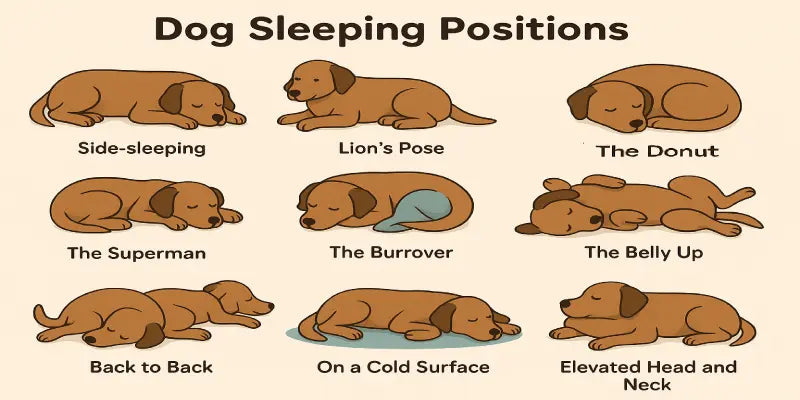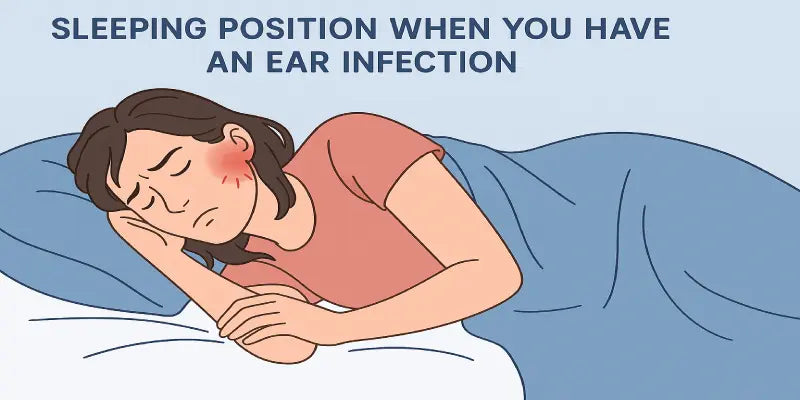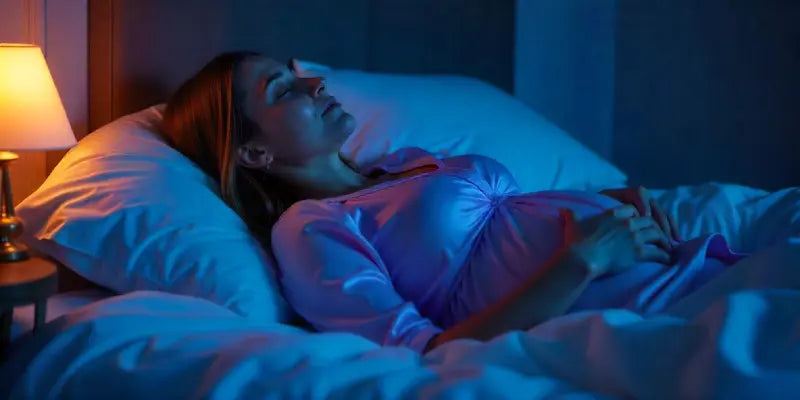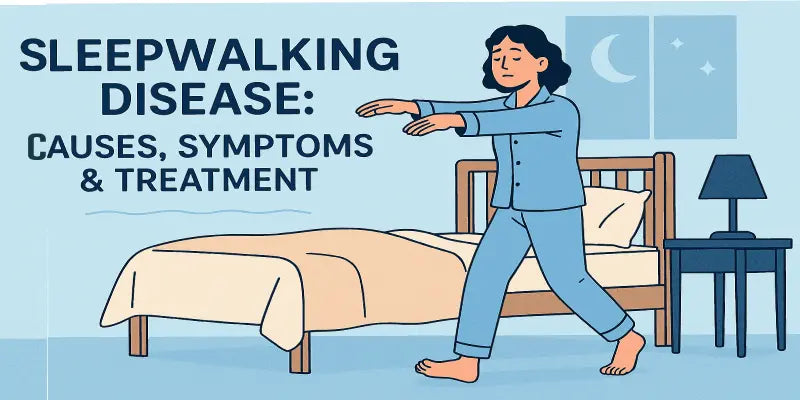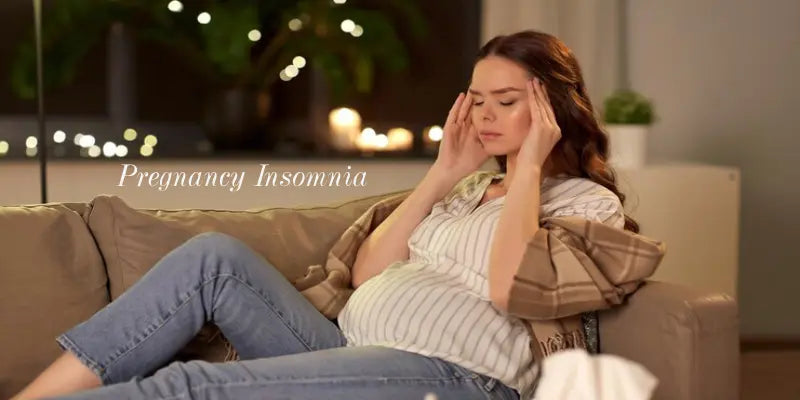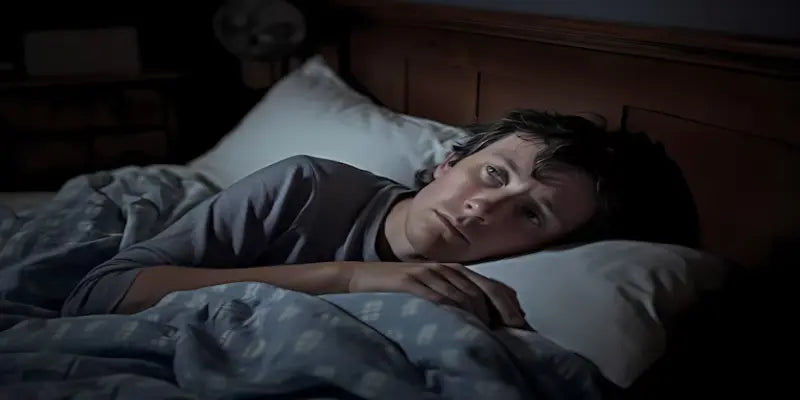
Will Sleep Deprivation Kill You?
We've all pulled an all-nighter at some point in our lives, whether it was for a school project, a wedding, or a long trip. But did you know there are people in the world who go without sleep for 11 or more days in a row? Yes! 11 days. It seems impossible to imagine.
Do these people die? “NO”. Can someone die from a lack of sleep? The answer is "YES".
Sleep deprivation doesn’t kill you directly but if you tend to follow a cycle of not sleeping enough, it eventually will affect your physical and mental health. The more sleep debt you build up, the worse it gets. After a night or two of bad sleep, you start to feel angry, moody, unmotivated and exhausted.
After a week of not getting enough sleep, you find yourself angry at people for no reason, headaches, no focus, overeating or undereating, crying over nothing and surviving on coffee. If you go without sleep for a long time, you can get hallucinations, paranoia, delusions, and other frightening symptoms.
In this blog, we'll look at how long your body can stand with little sleep. And what about a complete lack of sleep? Can it actually kill you?
How Long Can You Survive Without Sleep?
In 1963, Randy Gardner, a 17-year-old schoolboy in San Diego, California, stayed awake for 11 days and 24 minutes, or 264.4 hours. Gardner is still living in his 70s, but facing the consequences from bodily, mental, and emotional degradation and terrible sleeplessness decades later.
Gardner's 11-day experiment did not kill him, but anyone who has experienced complete sleep deprivation will likely agree that the end is near.
There is no scientific answer to how long someone can survive without sleep but the effects of lack of sleep can be felt right away. If you spend 24 hours without sleep, you are most likely to see these symptoms:
- Headaches
- Fatigue
- Irritability
- Sadness
- Trouble concentrating
- Slow physical and mental reaction time
If you don’t sleep for 48 hours, the symptoms of sleep deprivation will get worse. If you don’t sleep for a couple of days, you'll not die, but you'll have difficulties remaining awake. You can fall asleep regardless of what you're doing, but the sleep will not be as peaceful as your body requires.
At this stage of sleep deprivation, you may struggle to focus or complete your day to day tasks. When you wake up, you will most likely be exhausted and physically weak.
If you spend 3 or more nights without sleep, you can have full-blown symptoms of sleep deprivation psychosis, such as seeing and hearing things that do not exist. You can also experience paranoia, anxiety, or delusional thinking. Chronic sleep deprivation can lead to death but it is very rare. Not many people with sleep deprivation die but they experience some severe effects on their body and mental health.
How Lack of Sleep Risks Your Health
Sleep helps your body to repair itself and remove toxins to function properly during the day. When you don’t sleep for days, it will stop your body from getting charged and this will have an impact on your body, mind and mood.
There are so many risks associated with lack of sleep such as increased risk of accidents, risk of getting heart disease, obesity and many more.
Accidents
Foundation of traffic safety conducted a research on different driver with different sleep schedules, it is found that Compared to drivers who slept for at least 7 hours in the last 24 hours, drivers who reported sleeping for 6-7 hours had 1.3 times the crash rate, 5-6 hours had 1.9 times the crash rate, 4-5 hours had 4.3 times the crash rate, and less than 4 hours had an 11.5 times the crash rate.
Sleeping less than 7 hours can cause microsleep, which can lead to accidents. Poor sleep quality or feeling very sleepy during the day increases your risk of sleeping behind the wheel. Driving at night is also more likely to result in an accident for sleep-deprived people.
Cardiovascular Disease
Lack of sleep can increase your chances of getting cardiovascular disease, that includes heart attacks. In studies, it is found that people who sleep less than 5 hours have 69% more chances of getting a heart attack. People with diabetes and insomnia were twice as likely to have a heart attack. Sleep regulates blood sugar, blood pressure, and weight, all of which are related to cardiovascular health.
Injuries and Work Accidents
Some of the most tragic human and environmental health disasters have been partially due to sleep loss and night shift work-related performance failures, including the tragedy at the Bhopal, India, chemical plant; the nuclear reactor meltdowns at Three Mile Island and Chernobyl; and the grounding of the Star Princess cruise ship and the Exxon Valdez oil tanker.
It is found that those who do night shifts are more likely to have injury and workplace accidents. People who don’t get enough sleep have poor motor skills. Tired workers have shorter reaction times, reduced hand-eye coordination, poor balance, and other motor skill deficiencies that increase the likelihood of an accident.
Mental Health Issues
If you don’t sleep well at night, the very next day, you can experience trouble making decisions, solving problems, controlling your emotions and behavior, and coping with change. Sleep deprivation is also linked with depression, suicide and risk taking behavior.
There is also an inverse connection between sleep and mood. For example, anxiety is a main cause of insomnia. Mental health problems can also put you at risk for chronic diseases like heart disease, as well as more serious mental health issues like suicide.
Conclusion
You’ll not die after missing a night or two of quality sleep, but the consequences of sleep deprivation can be serious and raise your risk of death over time.
Lack of sleep might result in possibly catastrophic accidents or injuries. Chronic sleep deprivation can lead to premature death by increasing your risk of chronic health problems.
A lack of sleep should be taken seriously. If you're not getting enough sleep, talk to your doctor about what you can do to improve it.
If you are not getting proper sleep at night, you face difficulty falling asleep, you can consider investing in a good quality bamboo pillow. A bamboo pillow adjusts according to your neck and head, allowing him to sleep in an appropriate posture. So, it's time to say goodbye to aches, pains, and discomfort. It is extremely soft and anti-allergic, will not cause any skin breakouts and keeps your skin glowing.

